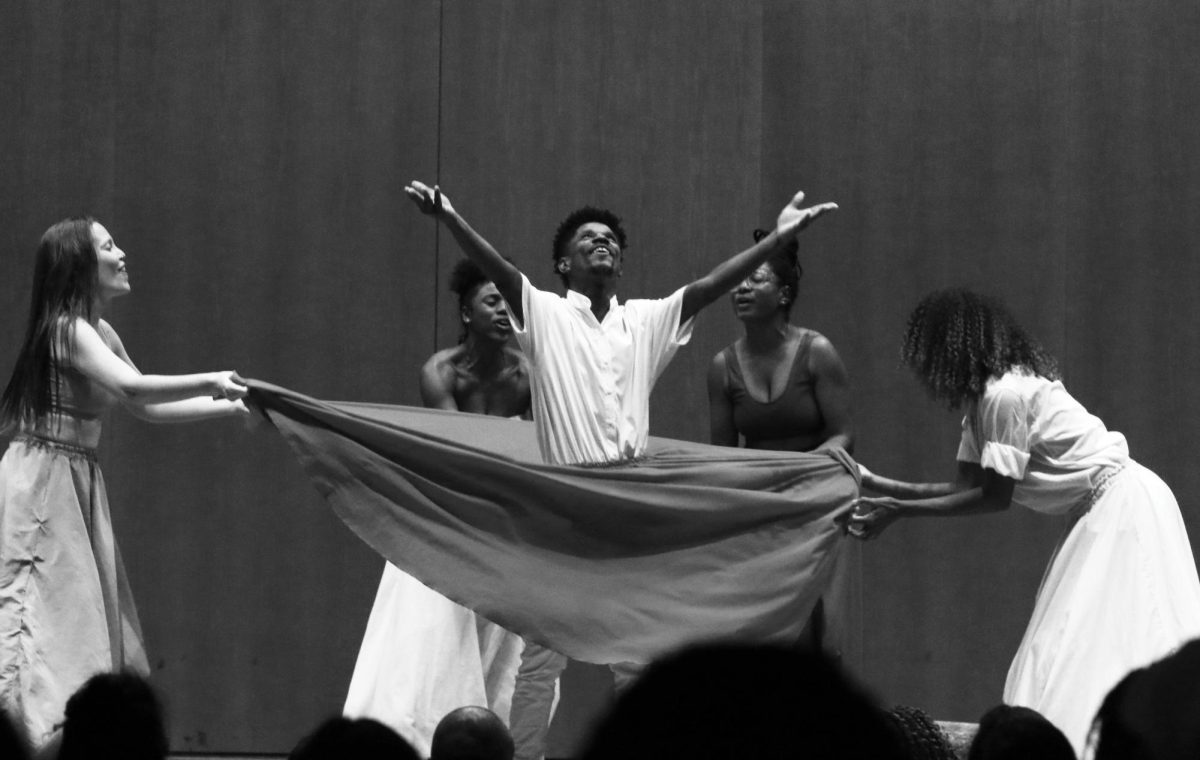Vibrant flowing skirts and rhythms of Portuguese melodies imbued Saturday evening as the Theater of the Oppressed Symposium artists commenced the opening act of their 9-day-long series across UT.
According to their website, the Theater of the Oppressed Symposium features eight Black Brazilian artists and leaders from the Center for Theater of the Oppressed to present a series of performances, workshops and discussion panels. The event, which takes place Oct. 21-29, examines Brazilian art and activism through the lens of prominent social issues such as sexism, racism and classism.
The Theater of the Oppressed method operates as a forum theater model, which incorporates audience participation into the discussion of the presented issues. Bárbara Santos, the director and coringa — Portuguese for “facilitator” — of the performances, said she served as a mediator between the stage and the audience.
“Usually, we present a question for the audience, and we ask them to come together (to) find some answers or new questions,” Santos said. “The difference in our perspective is that we try to convince people to find their answer from their own social place. We establish a dialogue with the audience.”
Laura Rose Brylowski, Spanish and Portuguese Ph.D. student and event organizer, said the closing ceremony proves especially important because it connects to the community. Brylowski said the ceremony will be hosted at the George Washington Carver Museum and Cultural Center, which serves as an important place for the Black community in Austin.
“We’re bringing the piece called Suspeito, where the actors, based on their life experiences, are (addressing) problems around systemic racism and their strategies for dealing with it,” Brylowski said. “Then the audience members will be able to participate and offer their own ideas and strategies.”
Ana Carolina Assumpção, Latin American studies Ph.D. student and event organizer, said she looks forward to the variety of events and diverse aspects of the Symposium.
“(The Symposium) speaks with different audiences,” Assumpção said. “We have one (event) that is focused on LGBTQ+ people or allies. The LGBTQ+ workshop has already sold out, so I’m excited for (all of the events).”
Free and open to the public, the Symposium integrates multiple UT departments to put on the production, including Fine Arts, Texas Global and the Teresa Lozano Long Institute of Latin American Studies.
“The ability to put together all the departments that are supporting us (is unique),” Assumpção said. “Every time that we talk to faculty, for example, they’re like, ‘Oh my god, you (have) so many people, so many departments are in this with you.’”
After the event concludes, Santos said she hopes the audience walks away inspired to work together to make positive change.
“The performance is not going to change reality,” Santos said. “What’s going to change reality is the action, and the action comes after the performance. What we hope is that people keep this experience and (make) concrete actions. If we don’t join forces we’re not going to change anything.”




















